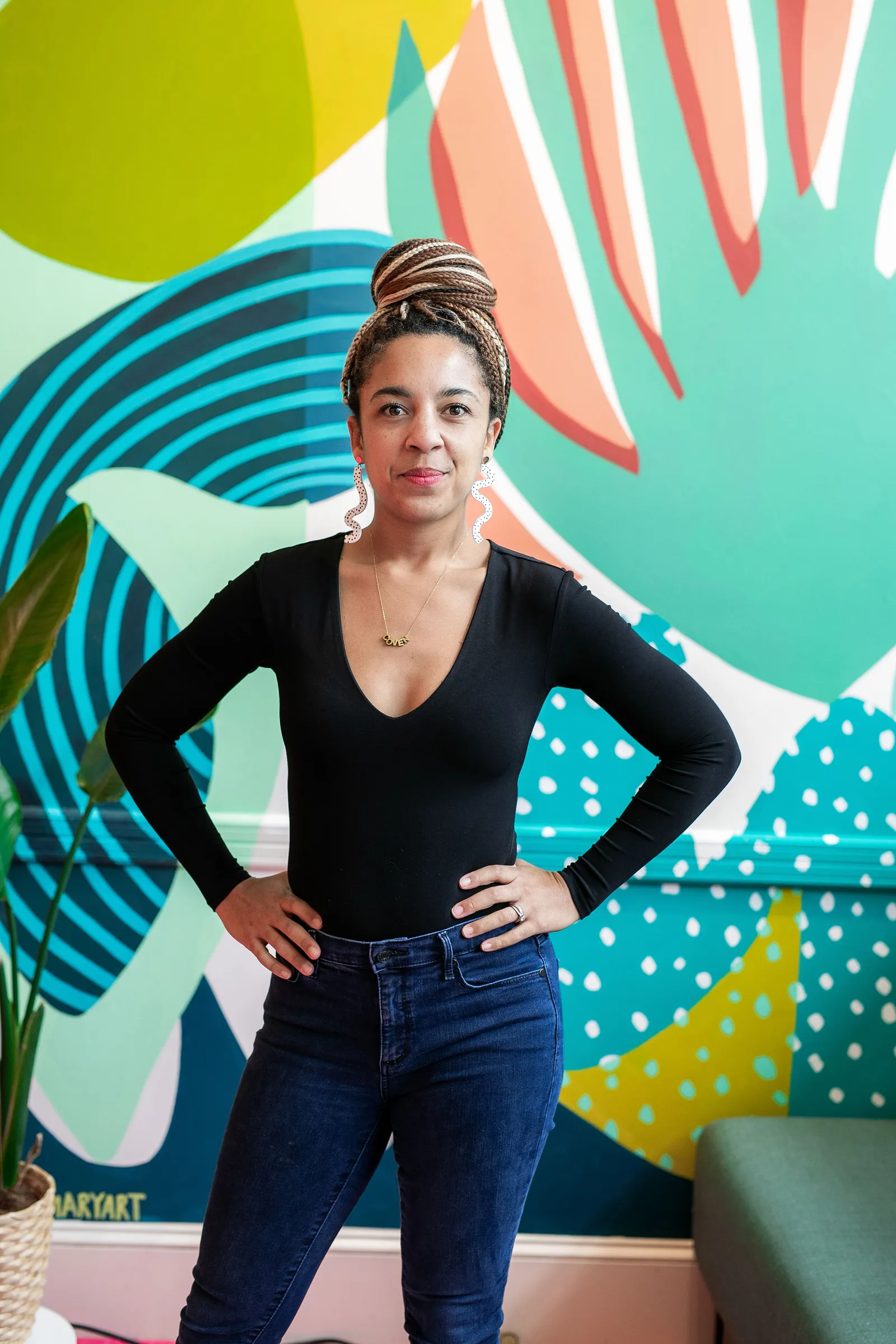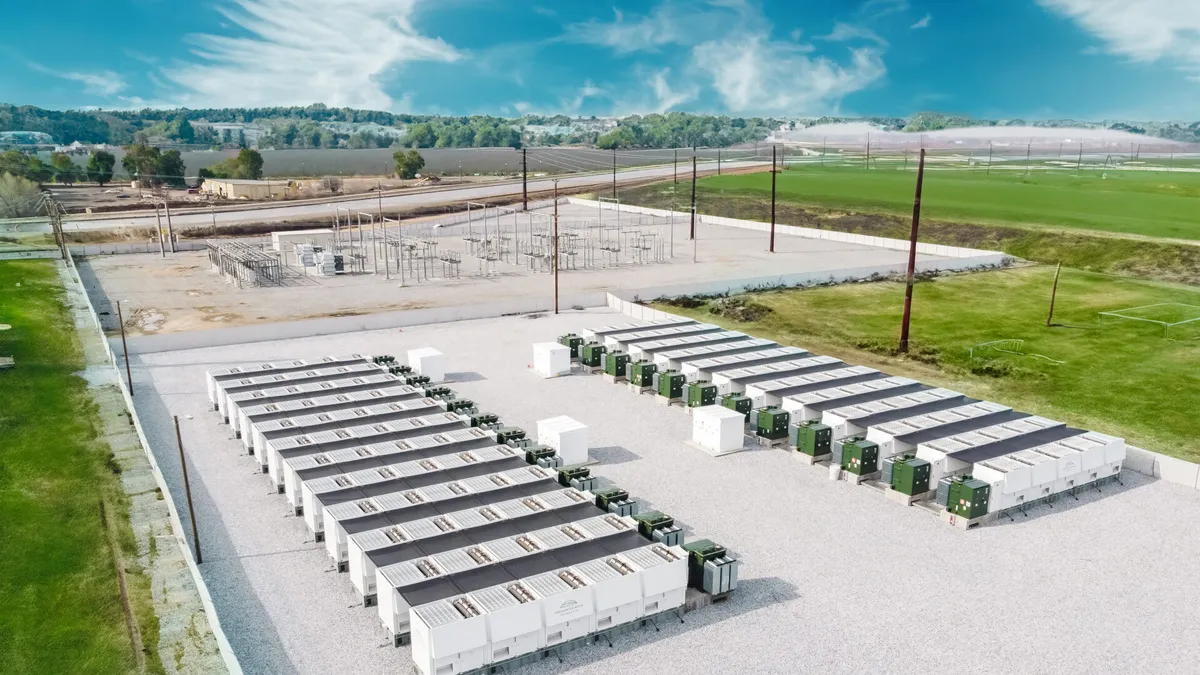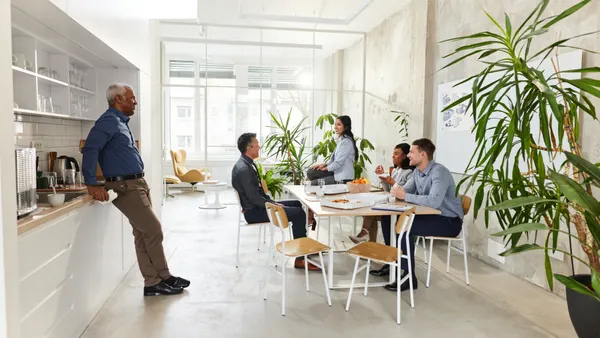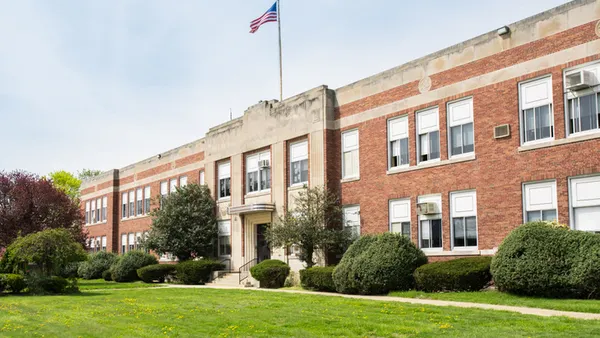Editor’s Note: This article is an installment in Caroline Colvin’s Office Space series, where they examine the future of work through the lens of “office space” — and whether pursuing a physical workplace is even worth it anymore.
The term “coven” might evoke images of women dancing in the woods under a full moon or American Horror Story’s third season — a mean-girl drama steeped in New Orleans’ rich culture of voodoo and hoodoo. But “The Coven” also applies to a women-focused, nonbinary-inclusive coworking company based in Minneapolis.
Alex Steinman, one of The Coven’s four co-founders, presented the approach to flexible work as an antidote to traditional workplace evils.
“We create the conditions for physical and psychological safety to flourish,” thereby allowing members to focus on the work, Steinman told HR Dive via email. Bethany Iverson, Liz Giel, Erinn Farrell and Steinman conjured up The Coven as a business in 2017 — partially as a response to President Donald Trump’s election to the Oval Office — but the name was floating around before physical spaces materialized.
“We had the name for The Coven picked out before we created the company because we affectionately called each other ‘the coven,’” Steinman said.
How coworking spaces have engagement built-in

The spaces — one in St. Paul, one in Minneapolis and a franchised location in the latter — were designed with “belonging” in mind. Steinman’s mention of belonging echoes what previous worksite and workplace experts have said: that the trend is for offices to be designed with community in mind. A regional manager of some coworking spaces in Washington, D.C. previously highlighted how his offices contained traditional, practical elements, but also had “soft seating” and natural light.
Communal areas continue to come up throughout HR Dive’s Office Space series as a crucial element of RTO. A lot of coworking spaces around the country, such as Industrious and WeWork, facilitate community through happy hours and other networking events.
Similarly, The Coven offers meet and greets with the team and “Black Joy Coffee Hours”; in late October, the coworking company will host the Radical Changemaker Awards to celebrate local social justice-minded residents. “We're seeing that people are seeking connection in new ways for their teams,” Steinman said, “whether that's special gatherings for their organizations or a place to learn new ways of working across their teams.”
Engagement is crucial when DEI is on the line
In discussing RTO, a management and DEI expert told HR Dive it’s important for employers to consider identities like race and gender in rolling out policies. Research has underscored how intersectionality factors into the remote work tug-of-war.
For midwesterners, it may come as no surprise that Minneapolis houses a community like The Coven; along with a thriving LGBTQ community, the Twin Cities are governed by Tim Walz, who signed the “Trans Refuge” bill and Reproductive Freedom Defense Act into law. Walz additionally signed an executive order protecting LGBTQ Minnesotans (and others) who receive gender-affirming care there.
Is coworking the future of work(sites)?
And just as witchcraft is on the rise, so is RTO. The majority of employers are projected to have their employees back in an office by 2024, per a ResumeBuilder report. Regarding flexible office space, WeWork continues to see growth year-over-year: Q2 of 2023 saw a 4% increase YOY and was up 7% for the first half of the year — despite some financial snags. For employers weighing the pros and cons of traditional offices vs. flexible ones, an industry leader such as WeWork expressing “substantial doubt” about its future may not bode well.
Having started in 2017, The Coven is in its infancy; however, Steinman noted, “beyond individual memberships, we’ve seen a 400% increase YOY in team memberships and are consistently at full capacity in our private offices.”
Throughout the Office Space series, each coworking space becomes a case study for how the future of work has evolved — down to the literal chairs, walls and types of leases that employers sign. “Modern leaders must be prepared and equipped to handle shifting demographics, technologies, values, and workplace rituals,” Steinman said.
“A common sentiment from employers is that their employees don't want to work at home anymore,” she added. “But they aren't interested in traditional office spaces.”
Taking inspiration from witches may not be a bad idea
When asked about the name, Steinman told HR Dive the anecdote about the nickname for herself and her co-founders. She also pointed to the etymology of “coven.” It’s a gathering of witches, but “the root of the word means to convene or gather,” she explained. (Ironically, the Latin root word and Old French variations also became “convent,” as in a place where people gather for monastic life.)
Amid RTO, The Coven may be emblematic of a veritable modern gathering place — despite the arguably archaic name. “The future of work is flexible and inclusive. Companies are releasing their traditional leases as rapid rates, and in return, employers are scrambling to answer the ‘where’ in workplace culture,” Steinman said.
Even though the name may conjure up images of bleak New England woods, austere cabins and crude runes carved into stone, the moniker may point toward more optimistic images.
“When all genders and radical change-makers come together, we make magic,” Steinman said.












